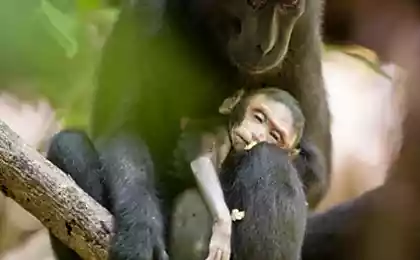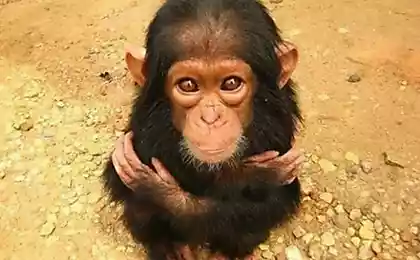504
Japanese macaque
Japanese winter is soft, especially in the mountains. But that didn't stop the tiny primates to colonize the island from the suburbs of Tokyo to the subalpine zone in the mountains. Japanese macaques climbed North of any monkeys, and apes, in the wild other types of our relatives can not tolerate temperature below zero (in the land of the rising sun the average winter temperature is -5°C, and the snow lies sometimes 4 months). And these cope.
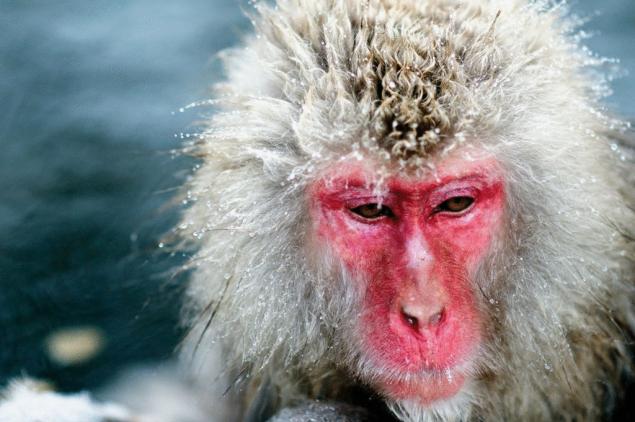
First, they have a very thick and dense fur. When you look at a ruffled macaque, it seems that it is quite thick and heavy. In fact, Japanese macaques are quite slender create, weight of their body on average is 12-15 pounds and occasionally up to 18. Growth less than a meter of 80-90 cm, and tail length is just ridiculous – up to 10 cm And indicators of males. Females and less.
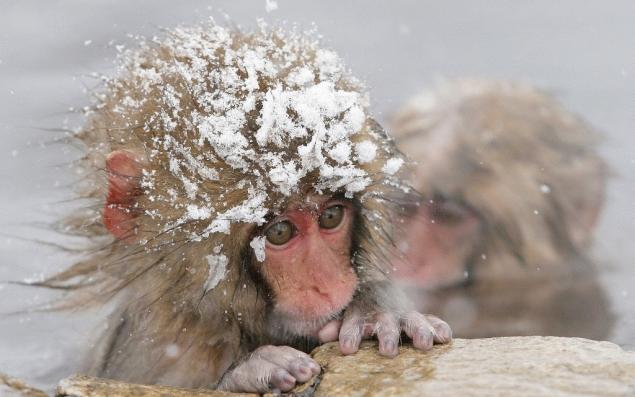
Second, these animals are extremely smart. They don't just wait out the winter, suffering from cold and hunger, they found an amazing way to keep warm. As you know, in Japan, in many places hot springs. Sometimes geysers, sometimes quiet sources. Monkeys enjoy the hot pools as steam rooms. After a night's sleep, when the sun warmed the air, they plunge into water up to my neck. In this entertaining position they sit half of the day, and when a little warmer, then start looking for food.
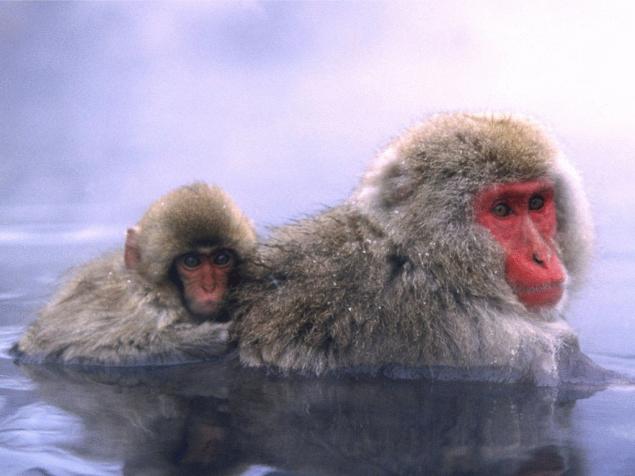
Macaques eat mostly plant food, and when caught small animals and insects, then use them. Sometimes they RAID the fields of farmers, for which they ruthlessly exterminated. And the situation is twofold. On the one hand, the Japanese macaque is a unique animal, which must be preserved and protected, on the other – they are pests that have to fight to preserve the harvest.
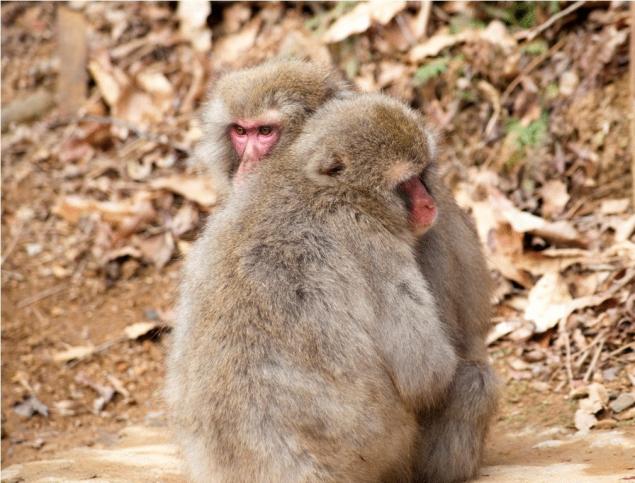
However, to keep the number of Japanese macaques can be in captivity, they thrive in zoos and on farms. For example, in 1972, one Texas farmer was brought to their homeland 150 snow monkeys (one of their names), where they lived and successfully bred. But in the end of 80-x the fencing on the farm sprung a leak, and hundreds of primates scattered around. I wonder whether they remain alive? Given their life expectancy is 25-30 years, many of them may disturb the Texas farmers.
Source: /users/155

First, they have a very thick and dense fur. When you look at a ruffled macaque, it seems that it is quite thick and heavy. In fact, Japanese macaques are quite slender create, weight of their body on average is 12-15 pounds and occasionally up to 18. Growth less than a meter of 80-90 cm, and tail length is just ridiculous – up to 10 cm And indicators of males. Females and less.

Second, these animals are extremely smart. They don't just wait out the winter, suffering from cold and hunger, they found an amazing way to keep warm. As you know, in Japan, in many places hot springs. Sometimes geysers, sometimes quiet sources. Monkeys enjoy the hot pools as steam rooms. After a night's sleep, when the sun warmed the air, they plunge into water up to my neck. In this entertaining position they sit half of the day, and when a little warmer, then start looking for food.

Macaques eat mostly plant food, and when caught small animals and insects, then use them. Sometimes they RAID the fields of farmers, for which they ruthlessly exterminated. And the situation is twofold. On the one hand, the Japanese macaque is a unique animal, which must be preserved and protected, on the other – they are pests that have to fight to preserve the harvest.

However, to keep the number of Japanese macaques can be in captivity, they thrive in zoos and on farms. For example, in 1972, one Texas farmer was brought to their homeland 150 snow monkeys (one of their names), where they lived and successfully bred. But in the end of 80-x the fencing on the farm sprung a leak, and hundreds of primates scattered around. I wonder whether they remain alive? Given their life expectancy is 25-30 years, many of them may disturb the Texas farmers.
Source: /users/155











